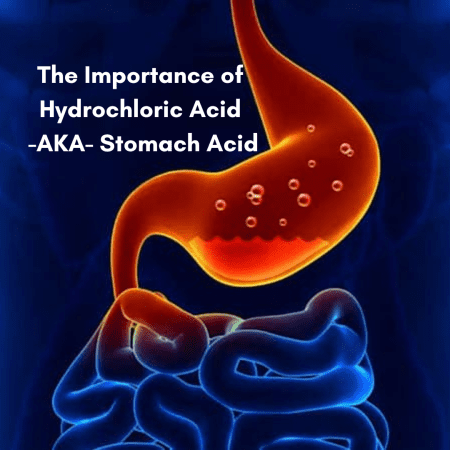 The stomach has a unique environment where the pH is substantially different from anywhere else in the digestive tract. Stomach acid (Hydrochloric Acid or “HCl”) acts as a protective mechanism that helps to kill incoming pathogens that make their way into the body via food and fluids.
The stomach has a unique environment where the pH is substantially different from anywhere else in the digestive tract. Stomach acid (Hydrochloric Acid or “HCl”) acts as a protective mechanism that helps to kill incoming pathogens that make their way into the body via food and fluids.
This highly acidic environment requires a pH of between 1.5-2.5. When the pH drops below 3.0, it initiates the closure of the LES (lower esophageal sphincter – the valve between the stomach and esophagus), preventing the contents of the stomach from traveling back up the esophagus, which cannot tolerate the high acid contents of the stomach. Not producing enough stomach acid is much more common than over production and is, we now know, the main cause of heartburn, acid reflux and GERD.
That said, HCl does so much more than simply protect us from pathogens. It plays other very important roles in digestive processes.
HCl acts as a signaling agent for the release of bile and digestive enzymes. Bile emulsifies fats and digestive enzymes break down starches (plants and carbohydrates). HCl itself works to break down protein. Without proper HCl, we are left with ineffective breakdown of all three macronutrients (protein, fats and carbs). This leads to vitamin and nutrient deficiencies. Remember, the digestive system is responsible for providing nutrients to every cell in our bodies, it is the way we get energy to cells to perform the countless tasks they have every moment of our lives. Low stomach acid prevents cells from optimal performance, impacting our entire body.
When we fail to properly break down food, we increase our risk of maldigestion and malabsorption, both of which leave us vulnerable to developing food reactions or sensitivities. When we encounter an increase in food reactions it means our immune system has been involved in tagging food proteins as foreign which is the beginning of a whole host of issues including chronic inflammation and the potential for developing autoimmune disease.
Aside from food reactions, low stomach acid also contributes to an inability to properly sterilize the small intestines which can lead to small intestinal bacterial overgrowth (more on SIBO in another post). This altered pH status in the stomach also negatively affects the large intestinal environment which is home to trillions of bacteria, allowing for limits in microbiome diversity and the overgrowth of organisms in the large intestines. (check out more about the microbiome now).
Hypochlorhydria is the clinical term for low stomach acid, an under-researched and dangerous condition. Every time you take antacids, H2 blockers or PPIs, you are contributing more to this problem (which may be one reason you develop heartburn in the first place).
As you can see, what might seem like a simple issue at the top of the digestive tract can snowball into a much larger, systemic issue if left unchecked.